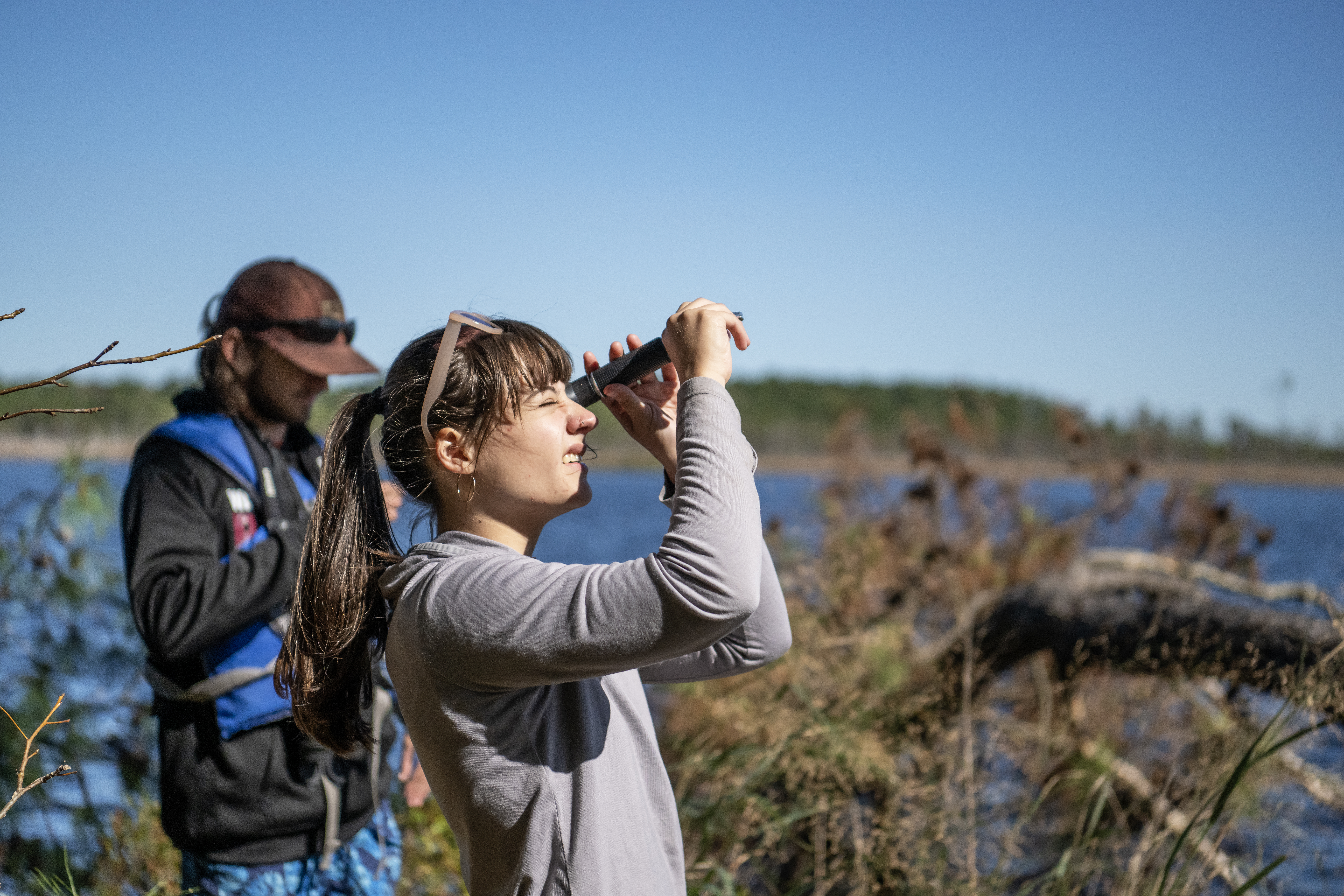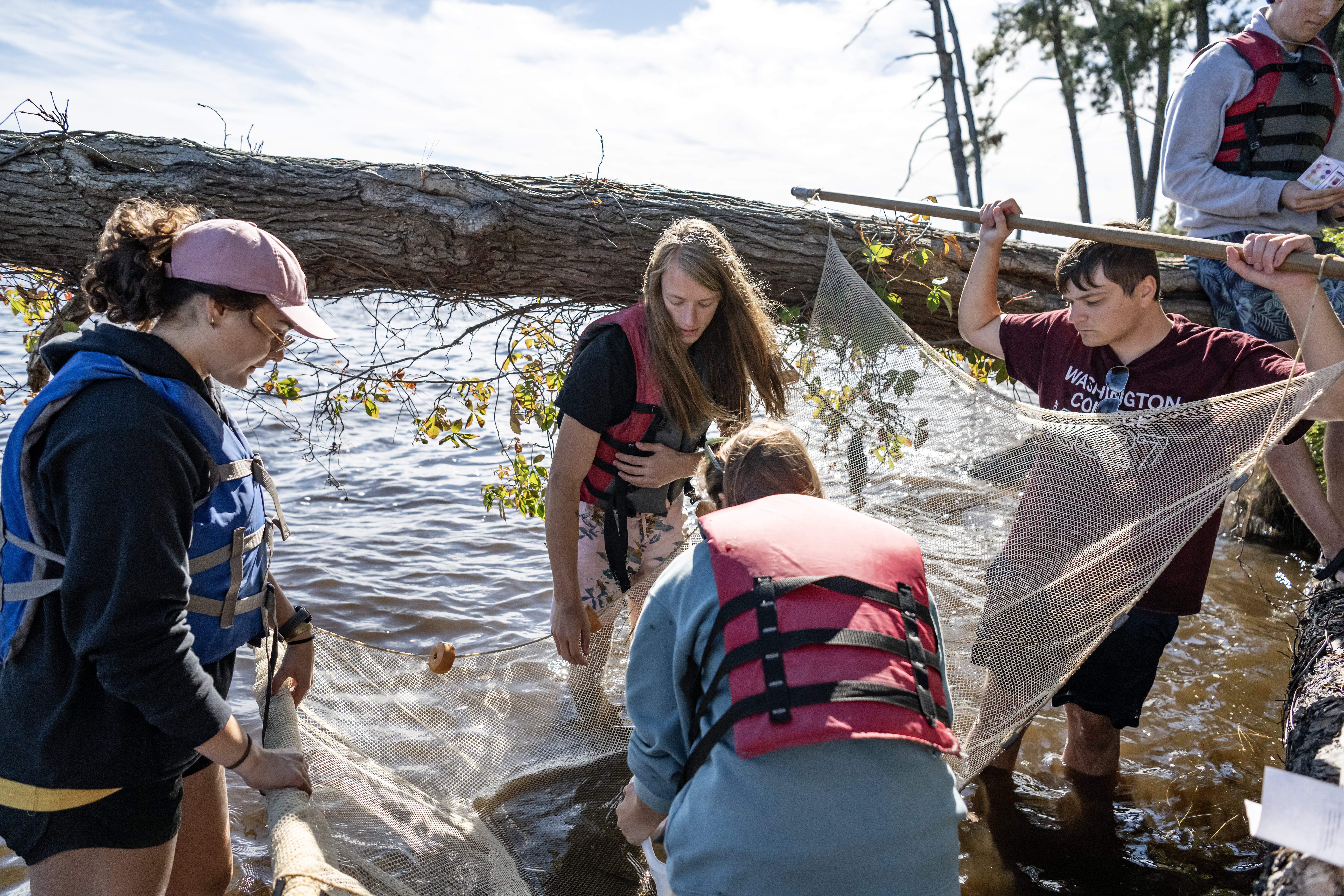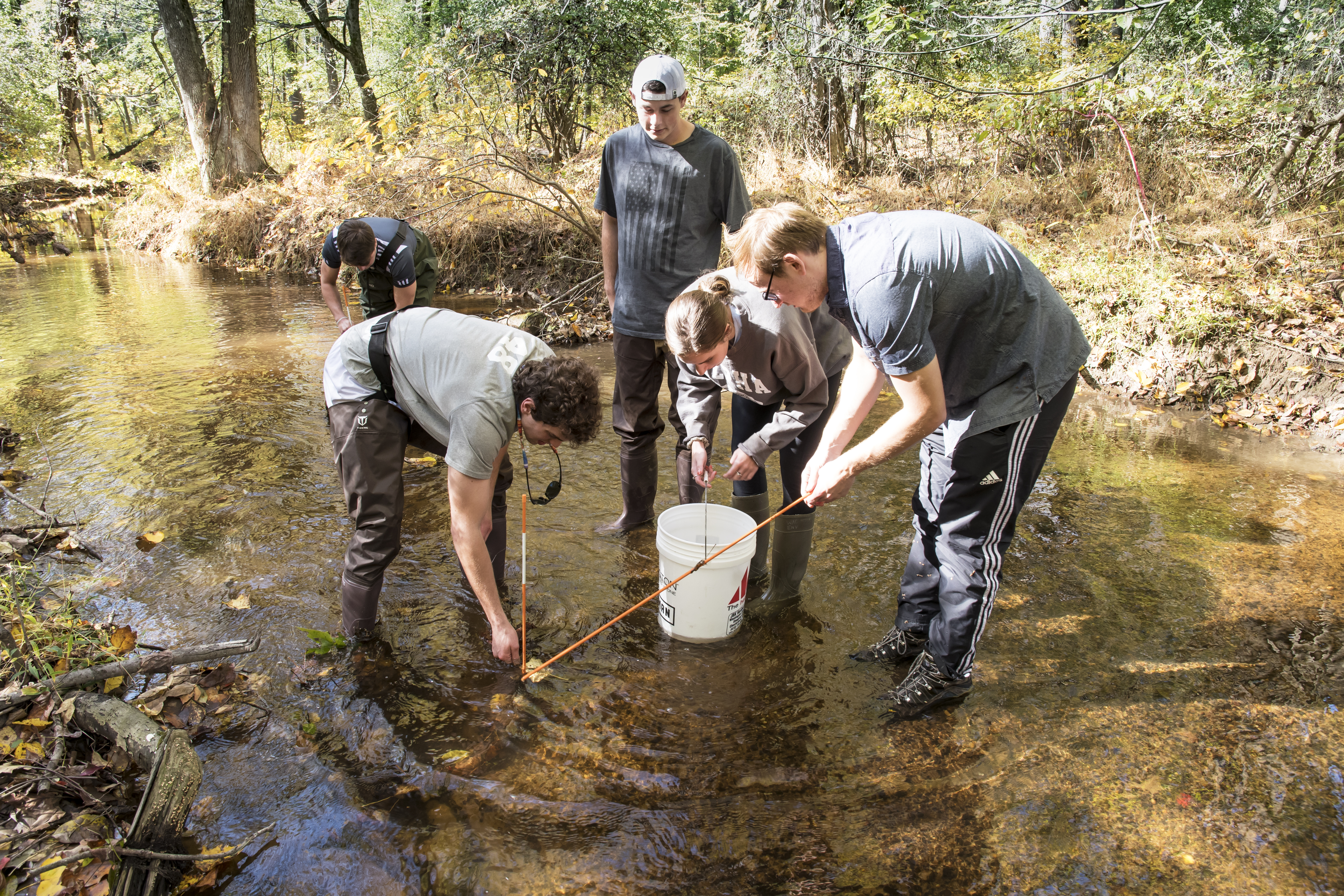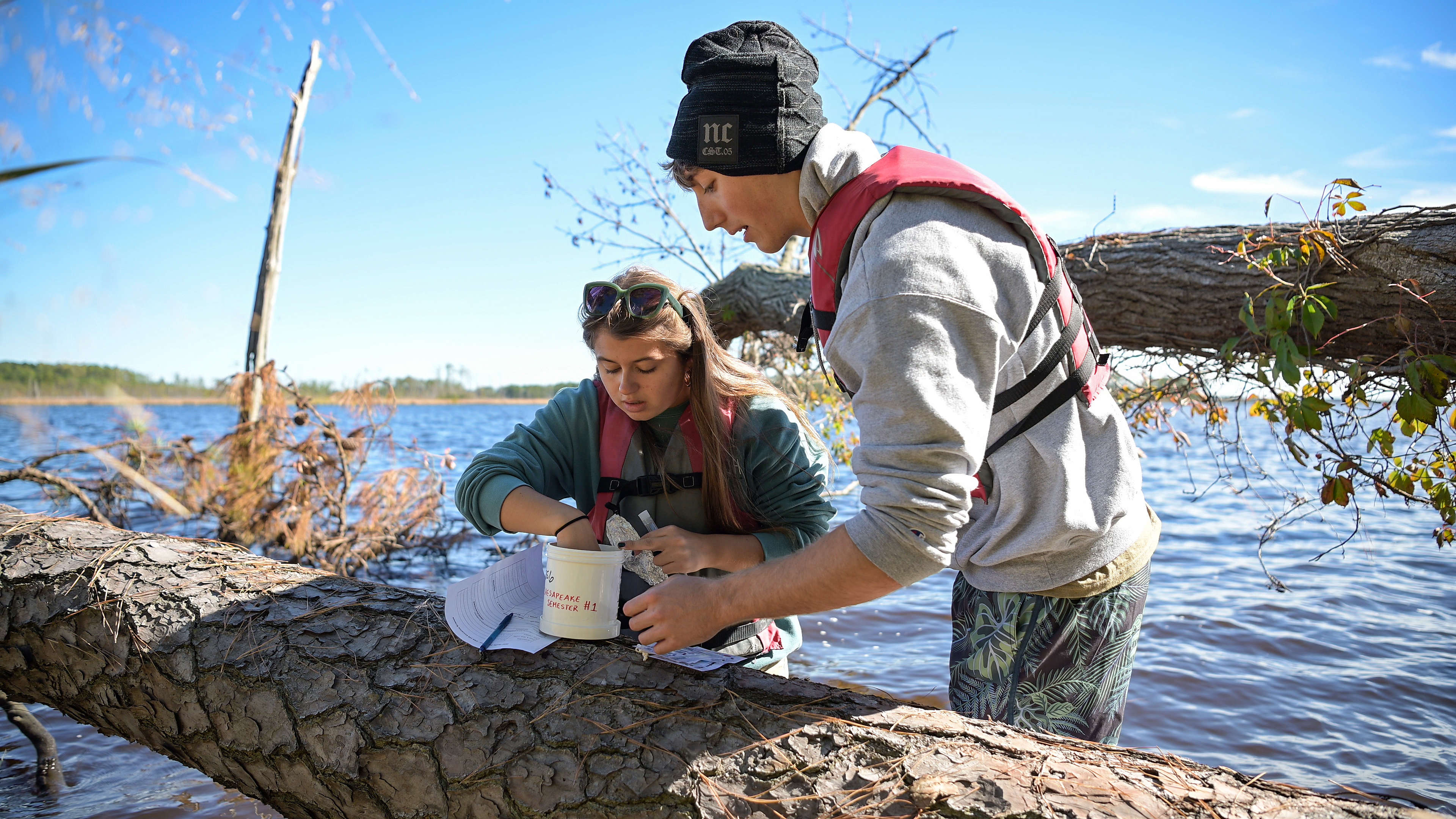
Environmental Science and Studies Majors
At Washington College, you will use the Chesapeake Bay region—its farms and waterways,
history and culture, people and their environmental concerns—as a learning laboratory.
Both the Environmental Studies and Environmental Science majors prepare students to
critically analyze and investigate solutions to regional and global environmental
issues. Whether you’re interested in taking water and soil samples, pursuing a career
in environmental policy, or want to better understand the connections between humans
and the environment, environmental studies or environmental science may be the major
for you!
Environmental Studies (B.A.) is the overlap of humans and the natural sphere with a focus on human interaction. It gives a holistic approach to the study of the environment. Courses are taught by faculty across campus so you can see the wide applications of environmental studies and address regional and global social-environmental issues from an interdisciplinary perspective.
Environmental Science (B.S.) is a science-based look at environmental interactions between humans and the world around us. The major is rooted in scientific study, with courses in chemistry, physics, geology, and more. Majoring in environmental science, you will get into the lab as part of your very first course in the major. Many labs are outdoors, exploring a variety of ecosystems including rivers, lakes, wetlands, farmland, fields, and more. The River and Field Campus (RAFC) provides numerous environments for classes and labs to conduct research and take samples.
The key difference between the majors is your interest in courses and what you plan to do after graduation. With our expansive approach to training all students in the breadth of environmental topics, you can choose courses based on your interests, rather than fulfill requirements for a particular concentration as is often required at other colleges.
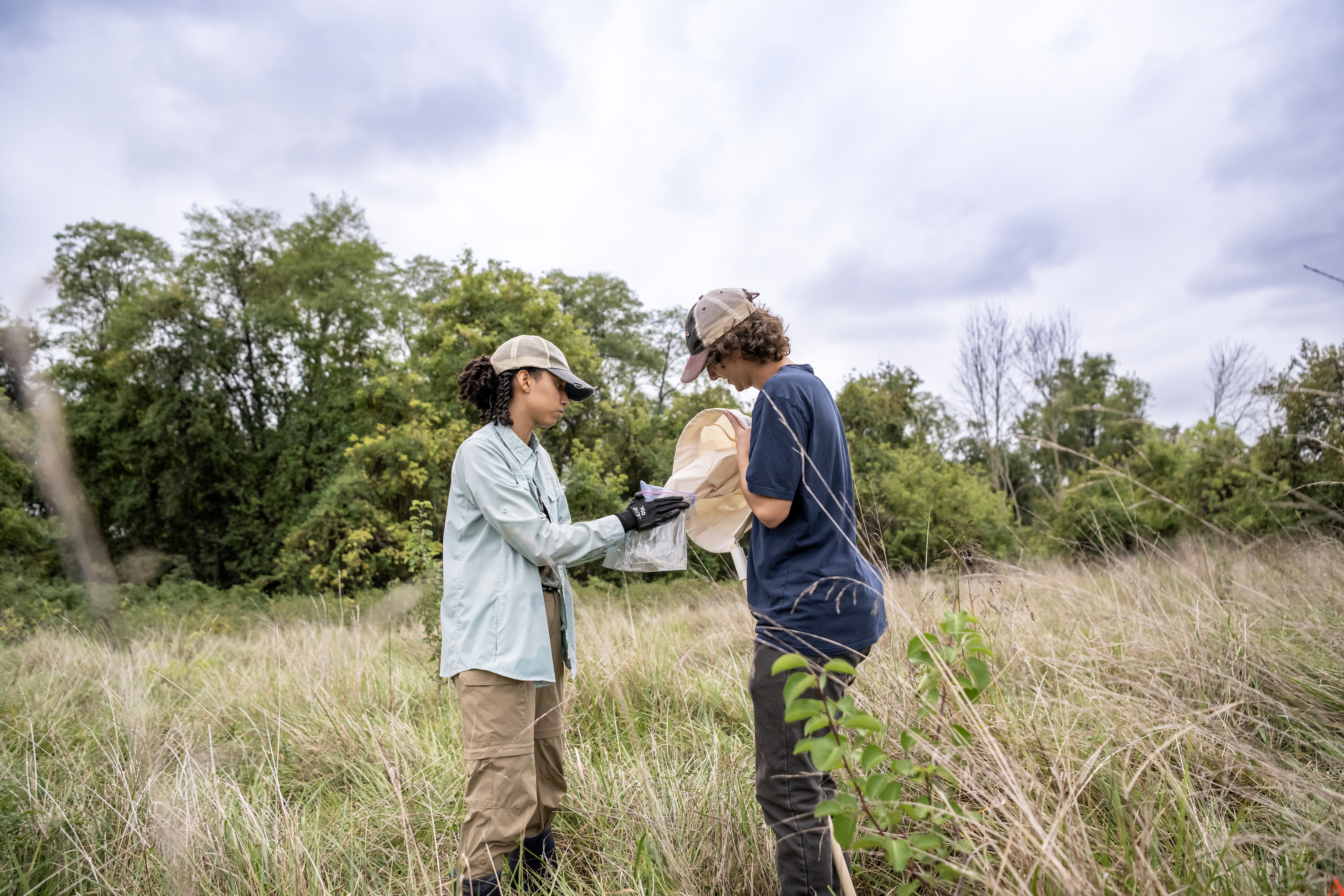
Environmental studies and science are the study of the interaction of the human world
and the natural world. This tends to be expressed as solving environmental problems,
but it can also be studying how humans interact with nature. In either major, you
will be prepared with foundational skills and select courses that interest you with
hands-on laboratory analysis, critical thinking, and data analysis skills to tackle
environmental issues.
Part of a well-rounded education on the environment includes learning how to approach
and engage with different ecosystems. As part of your studies, you may choose to complete
a year- or semester-long study abroad. Department-specific short-term study abroad opportunities over the summer, completing coursework while in another country, are also possible.
Spend time at the Bermuda Institute of Ocean Sciences to examine the complex ecology
of the Bermuda Islands and coral reef ecosystems, the impact humans have had on their
natural history, and current environmental concerns and proposed solutions, or immerse
yourself in Ecuadorian cultures and examine environmental challenges affecting the
country during a short-term study abroad program. Double majoring is possible with
either major. To browse our full course offerings, visit our catalog.
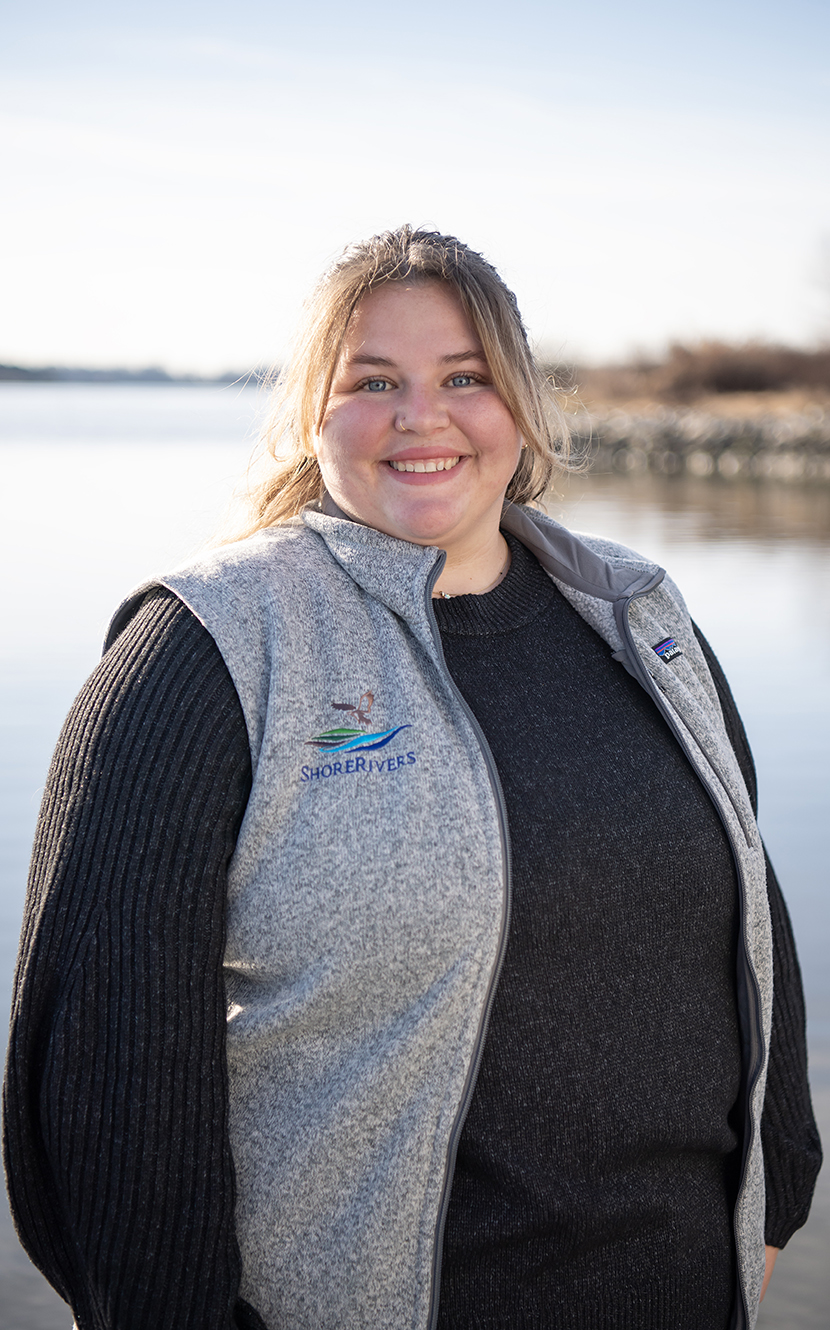
Maegan White '23
Community Engagement Coordinator at ShoreRivers • Chestertown, Maryland“Being able to work on improving the Chesapeake Bay has been really meaningful. It really was thanks to all of these connections and experiences at the College—from having a student leadership role to having an internship funded through the Center for Environment and Society and the Starr Center to then getting that full-time job. I'm very, very appreciative and happy with all the experiences that I had at Washington College that have led me to where I am now.”

